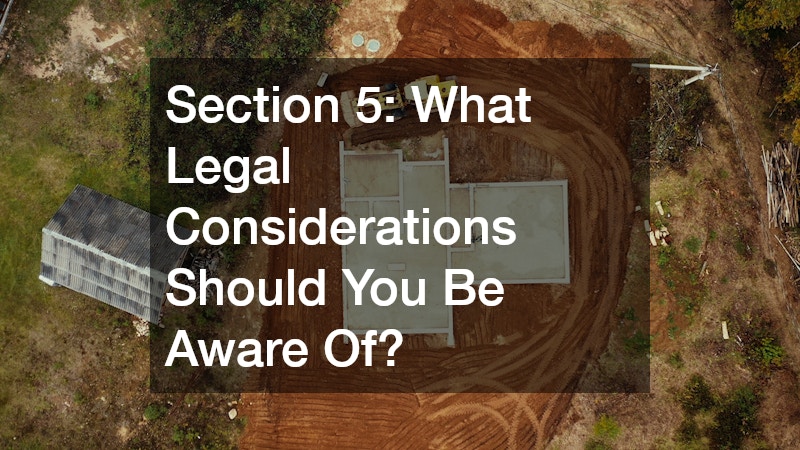Tips to Buying a House and Land Package
In this article, we will explore essential tips and answer common questions for purchasing a house and land package to help you make a well-informed decision. Buying a house and land package can streamline the home-owning process and offer financial advantages. Understanding the intricacies of this type of purchase is crucial for prospective buyers.
Section 1: What is a House and Land Package?
Understanding the Concept
A house and land package typically combines the purchase of a block of land with the construction of a home in a single transaction. This package arrangement appeals to many homebuyers due to its convenience and potential cost savings. Purchasing a house and land package means committing to a series of payments that are usually planned. These packages are often offered by builders who have secured agreements with land developers. The concept simplifies the home-buying process by eliminating the need to separately purchase land and contract a builder. Often targeting newly-developed areas, these packages can also include choices of home designs to suit personal preferences.
Benefits of House and Land Packages
One major advantage of house and land packages is the potential for financial savings when compared to buying a pre-existing home. In many cases, buyers benefit from reduced stamp duty costs, as the tax is only applied to the land component. Another appealing aspect is the customisability offered by many builders, allowing buyers to select finishes and fixtures. This personalisation ensures the home is tailored to their lifestyle and preferences. Additionally, these packages streamline the process by providing a one-stop-shop approach, reducing the time and stress involved in coordinating independent transactions. Many buyers appreciate the convenience of dealing with a single developer for both land and construction.
Section 2: How to Choose the Right Location?
Evaluating Key Factors
Location significantly influences property value, making careful evaluation essential. Key factors to consider include proximity to amenities like schools, shops, and public transport, which add convenience and enhance property value. Another crucial aspect is assessing potential growth opportunities in the area. A region slated for future development can offer great investment returns, as property values typically appreciate as infrastructure improves. Lastly, community safety and the overall feel of the neighbourhood matter greatly to buyers. A low-crime area with a welcoming community can contribute to a higher quality of life and a more appealing long-term investment.
Researching the Area
Thorough research on potential locations is vital for informed decision-making. Methods such as reviewing local council plans, speaking with residents, and attending community meetings can provide valuable insights. Online resources, like suburb profiles and forums, offer detailed information about demographics and lifestyle. Potential buyers can use these platforms to compare different areas and find the one best suited to their needs. Visiting the area at various times of day and night is also recommended to gauge the neighbourhood’s atmosphere and traffic patterns. This firsthand experience can reveal characteristics not evident during online or daytime-only research.
Section 3: What Budgeting Tips Should You Follow?
Understanding Your Financial Capacity
Before embarking on the house and land package journey, evaluate your financial standing. An honest assessment of savings, current income, and credit can clarify what you can realistically afford. Understanding your borrowing capacity is crucial as it influences the maximum price you can consider. Consulting with a financial advisor can provide insight into potential loans and their impact on your finances. Being aware of your financial limitations upfront will help avoid undue stress and financial strain. This transparency can guide you towards more suitable and sustainable housing options.
Setting a Realistic Budget
Setting a realistic budget involves accounting for the cost of the land and construction, plus an allowance for unforeseen expenses. This ensures that unexpected costs do not derail your financial plan. A detailed budget should also include additional costs such as taxes, insurance, and utility connection fees. Factoring these in from the outset can prevent surprises during the build process. Updating your budget periodically is recommended to reflect market changes or personal financial shifts. This ongoing adjustment helps maintain financial control throughout the process.
Section 4: How to Evaluate Builders and Their Offers?
Checking Builder Credentials
Verifying a builder’s credentials is a key step to ensuring a successful build. Look into their licensing, affiliations with industry bodies, and insurance coverage as indicators of reliability. Examining builder portfolios can reveal the quality and style of their previous work. Client testimonials and online reviews offer insight into customer satisfaction and potential red flags. Interviewing past clients can provide firsthand accounts of experiences with the builder, specifically regarding timelines and communication. This feedback can be instrumental in making a well-informed choice.
Comparing Package Inclusions
Builders offer varying inclusions in their house and land packages, making comparison necessary. Evaluate each offer closely to identify any differences in materials, finishes, and services provided. Ensure the package covers all essential aspects like landscaping, driveways, and fencing to avoid unexpected costs. Inclusions often reflect package value, so a comprehensive package can be more cost-effective long-term. Request detailed estimates from different builders to quantify the inclusions’ value. This comparison can highlight which builder provides the best return on investment for your needs.
Section 5: What Legal Considerations Should You Be Aware Of?
Understanding Contracts and Terms
Contracts for house and land packages are complex and require careful examination. Key elements include payment schedules, construction timelines, and penalty clauses for delays. Understanding standard construction warranties and maintenance obligations is essential. These aspects protect buyers from potential defects and ensure accountability from the builder.
Seeking Legal Advice
Engaging a legal professional can safeguard against common pitfalls in the home-buying process. They can offer guidance on contract negotiation and verification of the land’s title and other legalities. Solicitors can also ensure compliance with local regulations and help resolve zoning or easement issues. Their expertise is invaluable in spotting issues that laypersons might miss.

